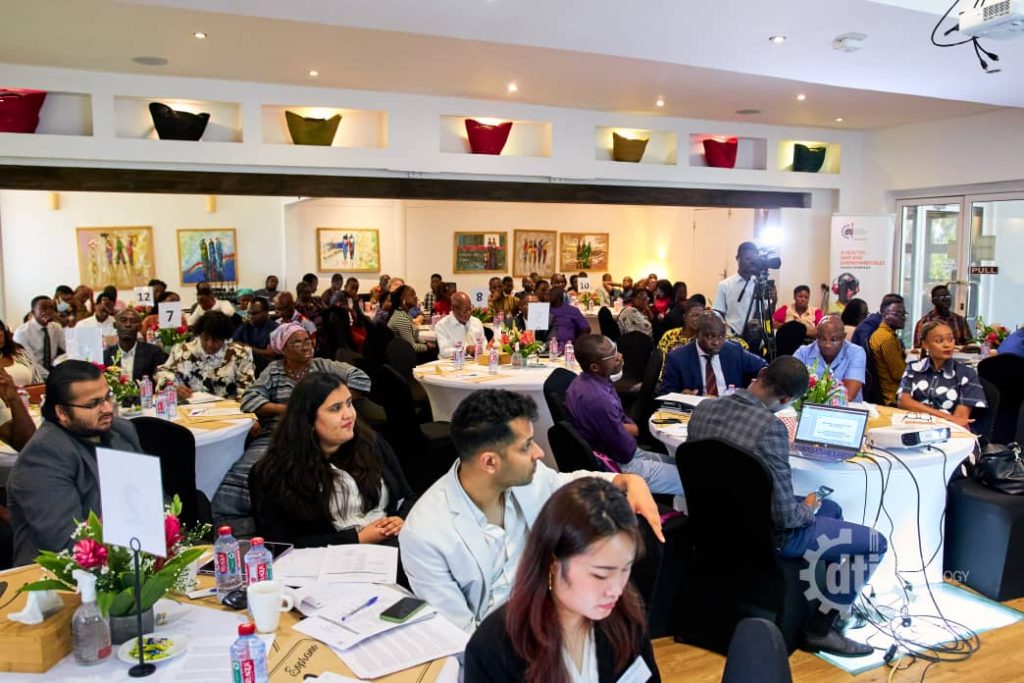By Morkporkpor Anku
Accra, March 20, GNA – Mr Bright Wireko Brobbey, the Deputy Minister of Employment and Labour Relations, has called for collaboration among stakeholders to enhance the country’s Labour Market Information Systems (LMIS).
He said Labour market data/information was currently fragmented and scattered among a number of organizations and institutions and collaboration would help harmonise and collect data to inform policy on job creation.
Mr Brobbey made the call during at an LMIS workshop for stakeholders from the formal and informal private sectors, the public sector and institutions involved in the LMIS in Ghana and abroad.
The workshop was organized by the Design and Technology Institute in collaboration with some students from the School of International and Public Affairs (SIPA) of the Columbia University
The meeting focused on the research led by these Masters Students on both the traditional and alternative LMIS models worldwide.
They explored ways in which the formal and informal sectors gathered and used data to enhance their work, while feeding into the needs of the Human Capital Development.
He said the LMIS would help to improve job placement and matching, improve the flow of labour market information and provide information on professions and training.
It will also help people to develop a job profile and develop skills for searching and applying for jobs and, collect and evaluate information necessary for government to be able to formulate labour market policy and to identify focus groups.

Mr Brobbey said apart from helping to get reliable data on the job market, such collaborations would also be key in changing the narrative that white collar jobs were the only sustainable ones.
Ms Constance Swaniker, the Founder and Chief Executive Officer of DTI, Constance Swaniker, said the third edition of the Precision Quality Conference concluded that a functional LMIS that links skilled individuals to employers and identifies gaps and opportunities for skills development and job creation was urgently needed for Ghana and Africa.
She said at the moment, the LMIS in Africa were fragmented and uncoordinated and there were challenges for both employers and employees as well as the government to get accurate data and the right information about the right skills and where to acquire them.
She said strengthening of such systems would feed credible information into decision-making as well as the design, implementation, monitoring and evaluation of policies that were better focused and targeted.
Ms Swaniker said a functional LMIS would reveal the opportunities in the informal sector as well as the Small Medium Enterprises (SMEs) space, both of which were acknowledged to possess huge potential for job creation in low- and middle-income countries.
“DTI and its Precision Quality Centre of Excellence see the importance of LMIS and have started building capacity to collect, analyse and disseminate accurate data that will inform stakeholders in Ghana on the most appropriate LMIS for the country,” she added.
Dr Kodjo Mensah-Abrampa, the Director-General of the NDPC, said, “as a people we must strive to move away from the business-as-usual way of doing things and introduce some innovation and creativity in the way we do things because the future of work comes with precision quality and standards.”
He called on customers to always demand high quality standards from their service providers to push them to always deliver quality with standards.
“We need to have a new expectation towards the future of work in Africa, especially Ghana,” he said.
He said while strategies were being put in place to produce technical human resource in the country, it was even more important for training regimes to be linked to standards and regulatory systems.
He said the country was strengthening and expanding its Human Capital Development to prioritise an improved value chain in employment creation both in the formal and informal sectors as the country pursued its industrialisation agenda.
GNA